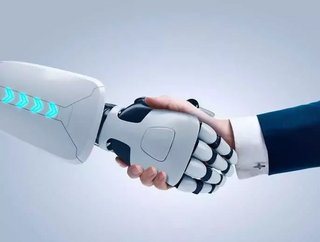375mn jobs to be displaced by automation by 2030 – McKinsey

The McKinsey Global Institute has predicted that 375mn workers will be forced to differentiate occupationally by 2030 as a result of the rise of automated solutions.
Within the report, named “Jobs lost, jobs gained: workforce transitions in a time of automation”, McKinsey highlights that many firms will turn to automated solutions such as robotics and AI due to the enhanced benefits that they offer.
See also:
-
Japan accounts for 52% of global industrial robot supply - IFR
-
Emerson launches solutions centre for digital transformation in Singapore
“The unprecedented level of digital change our businesses are experiencing is having a sizeable impact on the skills the workforce and the evolving job market require for the economy of tomorrow,” said Paul Cant, Vice President of EMEA at BMC Software.
Jobs are at risk across a number of sectors, from machine operation to data collection, due to the varied application of emerging automated technologies.
According to McKinsey, at least 30% of work in 60% of organisations can be carried out successfully using automated processes – something that will likely revolutionise over half of current jobs once implemented.
As a result, the firm’s calculated scenarios suggest that anywhere between 75mn and 375mn workers (3% to 14% of the global workforce) will have to change occupation by 2030, with automated alternatives likely to either completely or partially displace many jobs.
Even those who do not have to change occupation will likely have to change in some way in order to incorporate and work alongside machinery – something that Cant believes will have to be enforced by employers.
“Our research has revealed that 88% of office workers globally strongly believe that employers must instill an innovative culture to retain staff, thus improving employees’ productivity and future career prospects given the increasing digitisation of roles and responsibilities,” Cant continues.
“For companies to thrive during this period of ultra-swift technological change, business leaders must ensure constant efforts are being made to skill up workers through the offering of training courses to meet the demands and pace of this digital era.””
- OpenText’s Muhi Majzoub: Engineering Platform Growth with AIEnterprise IT
- OpenText CEO Roundtable: The Future of Safe Enterprise AIDigital Transformation
- OpenText AI: Empowering Businesses in Information ManagementDigital Transformation
- Microsoft in Japan: $2.9bn Investment to Boost AI & CloudCloud & Cybersecurity






